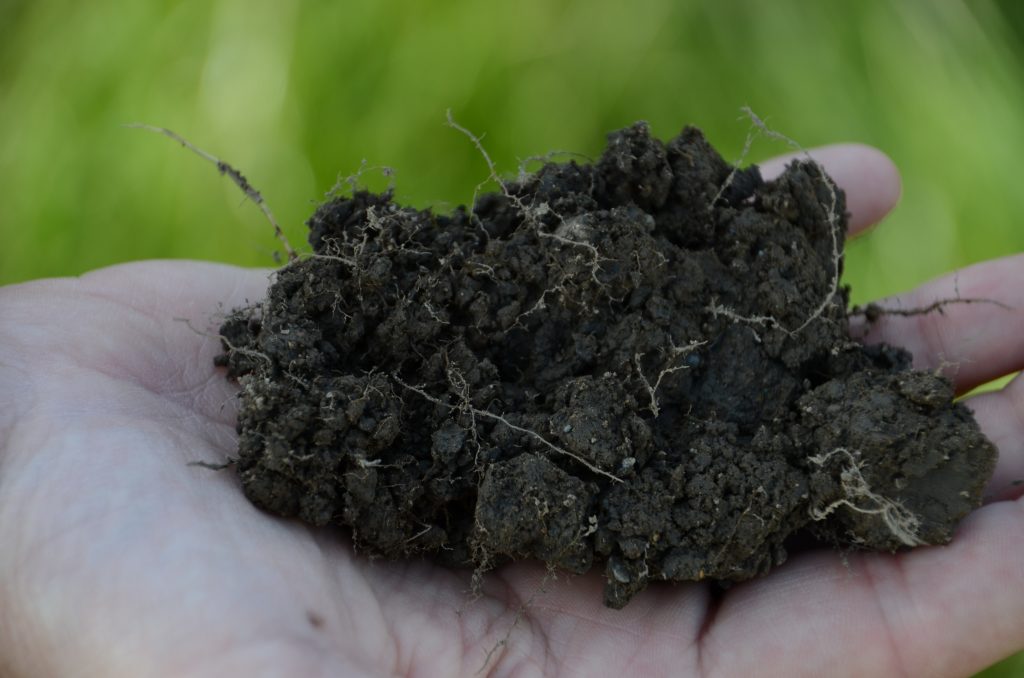
Features
Agronomy
Soil
National Soil Conservation Week
April 22, 2015 - Soil conservation for many years focused on protecting the soil from wind and water erosion. Today the soil is seen as an integral part of the larger environmental picture. Soil conservation is now directly linked with water quality, greenhouse gas emissions, carbon sequestration, biodiversity and air quality. Good soil management practices improve soil health making soils more resilient to a changing climate. Healthy soils also produce healthy crops.
Significant progress has been made on the soil conservation front over the last 25 years. Reduced tillage and no-till practices have significantly reduced wind, water and tillage erosion of our soils. The installation of thousands of erosion control structures has kept sediment out of our water courses. Improved crop rotations, cover crops and more effective use of manures, composts and biosolids have helped to improve soil organic matter levels contributing to better overall soil health.
This progress would not have been possible without the leadership that has come from the farm community with support from government programs and researchers. Individual farmers and groups of farmers provided the innovation and drive to make changes in tillage systems without the information we have available today. That drive continues now as growers look for ways to supply an ever increasing demand for their products and at the same time protect the environment.
Despite all the efforts, soil erosion and soil degradation is still orrurring on many fields. Some, for various reasons have not adopted soil conservation practices. Others have reverted to using more tillage, which is breaking down soil structure, leaving fields prone to erosion. In these fields multiple years of the same crop have replaced good rotations. These and other practices are depleting soil organic matter reducing the resilience of the soil and ultimately impacting crop yields in this changing climate.
So in this International Year of Soils take time next week, and all through the year, to think about what you have done to protect your soil and other practices you could implement to further improve your soil’s health.
Don’t know where to start to make changes or looking for ways to improve soil health? The Great Lakes Agricultural Stewardship Initiative may be able to help. The program will pay for a Certified Crop Adviser to complete a Farmland Health Check-up on three fields. The main focus of the Check-up is on soil health. It will assess a number of aspects of soil health and indicate what is being done well and what improvements could be made. Visit the Ontario Soil and Crop Improvement Association website http://www.ontariosoilcrop.org/ for more information on this and other funding programs.
Remember poor soil management will cost you while good soil management pays dividends.
April 23, 2015 By Adam Hayes OMAFRA
 A healthy soil with lots of pore space National Soil Conservation Week runs from April 19th to 25th
A healthy soil with lots of pore space National Soil Conservation Week runs from April 19th to 25th